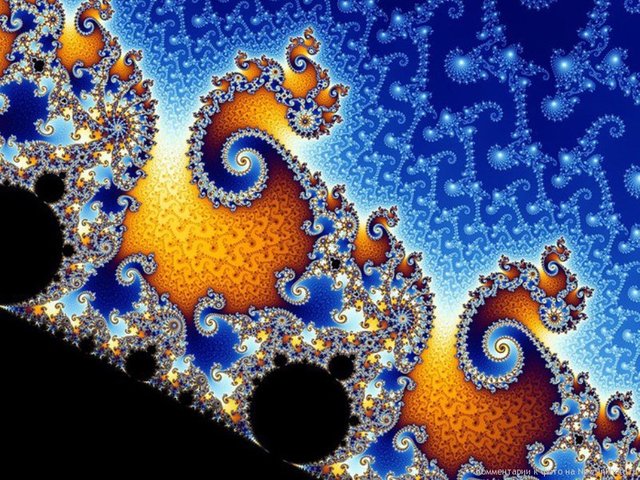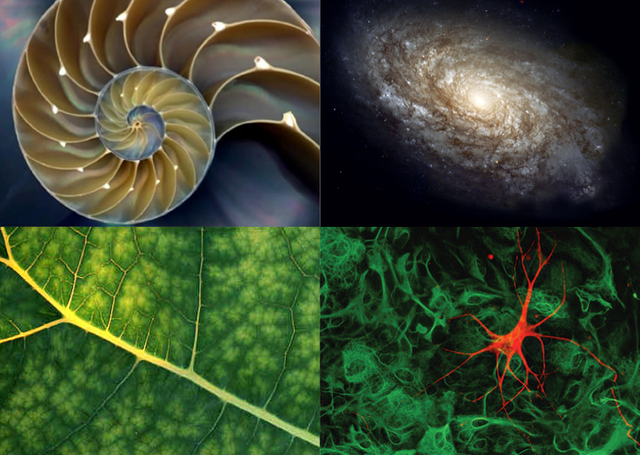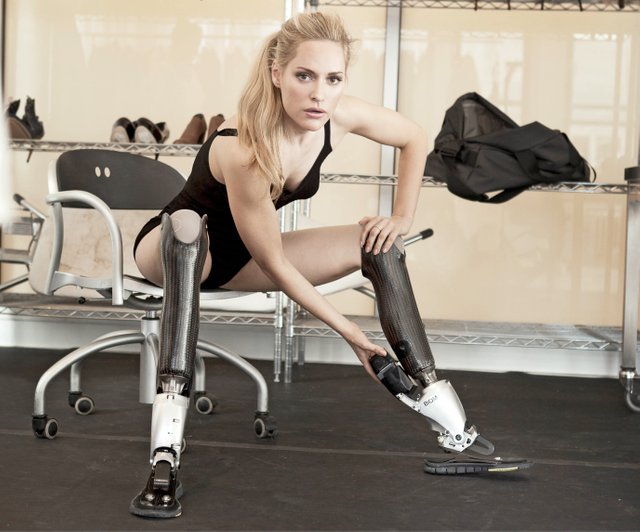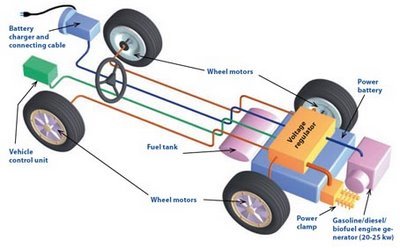How Capitalism is like Evolution, and Socialism is like Intelligent Design

Imagine meeting someone who has never seen snow. They are completely unfamiliar with the physics behind its formation, so it comes as an immense shock when you show them a microscope slide of a snowflake.
"Look at the geometric intricacy!" they exclaim. "The radial symmetry! The hexagonal structure of it. This is mathematically significant, isn't it? Some brilliant artist had to have manually sculpted this. There is no other plausible explanation for how it could come into existence."
As human beings, much of our surrounding environment is manmade. Most of the examples of complexity that spring to mind are products of human engineering. It is a very short, and understandable, leap from that basis of experience to the conclusion that complexity found in nature must also be the product of deliberate engineering by some unfathomably brilliant mind.
Of course that's not the case for the snowflake, which exhibits a very different type of complexity than what is seen in products of human engineering. Water molecules consist of three parts; a hydrogen atom and two oxygen atoms. Consequently when temperatures are sufficiently low, covalent bonding occurs and they interlock into a hexagonal lattice you could compare to chicken wire.
This hexagonal self-organization at the molecular scale is why the layout of snowflakes remains hexagonal as they grow to the macroscopic scale. The branching structure of the snowflake's "arms" is due to common patterns in anything which forms by gradual accumulation against some sort of resistance, governed by simple rules.
This branching pattern, in which the overall layout reoccurs as you examine it closer and closer, is called a fractal. It is the smoking gun that whatever it appears in is the result of a gradual process of accumulating compexity according to rules which ultimately dictate what the outcome looks like. Change those rules even a little bit and you drastically change the outcome. An example of fractal artwork procedurally generated on a computer can be seen below.

This is called an optimizing process, or an "optimizer" for short, where the ruleset determines what quality the process is optimizing for. Evolution is perhaps the most famous optimizing process ever discovered, which of course optimizes the genome of species over time for successful survival and reproduction, against environmental opposition, competition and predation (the resistance mentioned earlier). Below you can see some examples of fractal patterns found in nature which result from the principles of procedural generation described thus far.

Evolution achieves by the slow but steady approach and with dead simple rules what would require God-like intelligence otherwise; to fill absolutely every ecological niche with a species perfectly suited for it. If the environment favors swimming, it will eventually be populated by skilled swimmers. If it favors climbing, then skilled climbers will appear, demographically replace poor climbers over countless generations, and eventually be all that remains.
Capitalism is also an optimizing process, which by now shouldn't surprise you. The parallels are obvious. Specifically it optimizes for profit, with consumers exerting the selective pressure instead of the environment. The result? Absolutely every niche in the market is filled with a product suited to that particular consumer desire.
This effect has been noticed long before any of us were born, described as the "invisible hand" of the market, once again anthropomoprhizing an unintelligent process because it produces outcomes that would require superhuman intelligence to engineer.
If you were to ask, for instance, "what would the cheapest hamburger any significant number of people would be willing to eat look like", Capitalism has an answer for that. Or "What is the highest end electric sportscar that would still attract enough buyers to turn a profit", it has an answer for that too. This is why, for instance, cars targeting the same application and income bracket often look very samey. There's only a narrow range of right answers to that equation.

Historically, the most commonly proposed alternative to Capitalism has been a planned economy. Rather than setting up Capitalism and letting it go, procedurally filling niches as they appear, prices fluctuating dynamically according to what the market will bear, it is instead undertaken to do all of that manually by a central authority consisting of between a dozen and a hundred humans.
This is the economic equivalent of intelligent design. Predictably it doesn't work terribly well unless those in control of the planned economy are actually of superhuman intelligence, and they never are. This results in frequent shortages, as levels of demand for various products are incorrectly predicted, resources are mismanaged, etc.
At this point you might say "But evolution is horribly brutal. Civilization's purpose surely must be to elevate us up out of that primal condition, affording us with a degree of comfort, safety, fulfillment and opportunity not available to wild animals: and indeed, nobody wants to live that way.
A purely Capitalist society is unlivably brutal for the same reason that a state of nature is. The strongest simply dominate the rest, warlords sending armies of malnourished serfs to fight and die in defense of their master's property. So, we regulate it. Regulation is like the rim of a pool table which prevents the balls from going over the edge. Of course it's possible to play an absolutely perfect game where the rim isn't needed, but how often does that occur?
This represents a fusion between deliberate design and an optimizing process. Sort of like correcting flaws in our own biology by surgically integrating a technological alternative. The rest of the body is still biological and a result of evolution, but evolution sometimes makes mistakes. An ideal outcome can be achieved by letting evolution do its thing most of the time, but stepping in with an engineered solution when it produces an unwanted outcome. Blindness, missing limbs or deafness for example.

This is the cybernetic solution. Cybernetics doesn't only refer to fusions between biology and technology, but in a more general sense, the practice of interfacing two totally different paradigms in order to achieve a better result than either could by itself.
A hybrid car is an example of automotive cybernetics, where the addition of the regenerative brakes, electric motor and batteries allow the vehicle to recover kinetic energy that would otherwise be wasted as friction on the brakes, and put it to good use re-accelerating the car from a standstill.

This principle is why the economies of nearly every developed nation in the world employ a hybrid approach, predominantly capitalistic but with socialist elements which smooth over Capitalism's rough edges. For example, were there no safety net of any kind, hundreds of thousands would perish from exposure each winter simply due to being homeless at an inopportune time of year due to unexpected circumstances.
The boom/bust cycle inherent to Capitalism ensures that, when the bust rolls around, there will be freshly homeless. But that isn't a death sentence because, in recognition that only 8% of homeless remain that way for longer than three years, we have agreed as a society to provide for the survival of the temporarily disadvantaged.

Healthcare is another example. Without any such provision, any unexpected injury could result in your starvation. Can't physically get to work? No family to support you? Starve to death. Can't do the job you're trained for because of an injury or automation, and can't afford to retrain? Starve to death. This form of Capitalism is riddled with dead ends, black pits with death waiting at the bottom that are much too easy to fall into however vigilant you are.
We can never totally eliminate all of these pitfalls. We can't coat the world in Nerf foam so nobody ever stubs a toe, prevent milk from spilling and ensure that you never see or hear anything that offends you. That's beyond the scope of a reasonable benefits system. But a happy medium exists between the two. Between the pool table with no rim, and Nerf world. The only legitimate debate remaining in Western countries is what the appropriate balance is.
These days, probably in response to ongoing job loss due to automation, I encounter a lot of people in my age bracket who are gung ho about reviving Communism. I think because their professors were Communists, so the only knowledgeable people they've heard talk about Capitalism only covered what it's bad at, omitting what it's good at.

The only people millenials see or hear speaking highly of Capitalism are suited men who live in gated communities or private compounds, disparaging the poor as inferior leeches. It's no wonder, with such spokespeople, that the image of Capitalism has been circling the drain as of late.
That's a shame, as until the technology exists for a robotically facilitated post scarcity economy, any workable economic scheme must be built atop Capitalism for the same reason that a train without an engine isn't going anywhere.
If you've ever played a big budget videogame with an expansive, explorable gameworld, odds are good that the terrain was first procedurally generated to do most of the work, then the game artists stepped in to correct unsightly mistakes made by the terrain generator, to sculpt more unique looking landscape features, to manually change the distribution of foliage, to add towns or cities, caves, and otherwise flesh it out.

This allows the creation of game environments that would take decades to manually create, vertex by vertex, in a matter of months. But the result does not suffer for it as some fully procedural games do (with their endless samey-looking terrain) because of deliberate alterations, flourishes and embellishments made by the human game designers.
This is yet another example of a situation where letting an optimizing process do most of the work, then stepping in to tweak the result to our own liking achieves an outcome that we would be incapable of manually engineering every aspect of.
Eventually there will be no need for workers, as robots will be far more efficient at literally everything. At that point Socialism will be the only choice.
Fully automated luxury communism is the future :)) @cryptohustlin
That isn't Communism. In Communism, Everybody works. In post-scarcity, nobody does. Government ownership of the robots isn't necessary either, just taxation of their productivity proportional to the wages of displaced workers
No, communism is when the means of production are owned collectively by the people. Communism doesn't at all necessarily imply full employment.
Once again, you are wrong in how you define communism. Have you even read The Manifesto or Das Kapital ?
If you had you would know that no actually communist society has ever even been attempted in the modern era and that contemporary examples of 'communism' such as China, the C.C.C.P, the D.K.R.P etc are communist in name only.
Communism is the total collapse in the social hierarchy which accompanies an economy in which the means of production are collectively owned by the people of Mother Earth, and their excess production is shared freely amongst them. Communism is practically synonymous with any post-scarcity social arrangement aimed at a humane distribution of the world's resources.
I mean real world Communism, of the sort which has actually existed. The sort you describe has never existed on a national scale and never will, because the organized hierarchical movement necessary to overthrow the existing government simply steps in and becomes the new government afterwards every time.
Moreover, it remains true that Communism does not mean handouts, but that the Government assigns everybody a job. It is a mystery to me how it became synonymous with free shit in the US, nothing could be further from the truth.
Also, as I said before, government ownership (aka "collective ownership") of the robots isn't necessary. Just taxation of their productivity proportional to the wages of displaced workers. In this fashion, however many workers have been displaced, the robots which did so generate sufficient revenue to support their basic income payments.
Not the only choice. Picture the future war from the Terminator films, except it's the wealthy elite in control of the machines rather than Skynet.
Sadly never seen the terminator films lol. Not much of a tv guy.
This is very interesting, but please give further discussion to why socialism is problematic. I am unconvinced on that point.
Thank you! You made some well thought through, convincing argument and good examples: “A purely Capitalist society is unlivably brutal for the same reason that a state of nature is. The strongest simply dominate the rest, warlords sending armies of malnourished serfs to fight and die in defense of their master's property. So, we regulate it…”